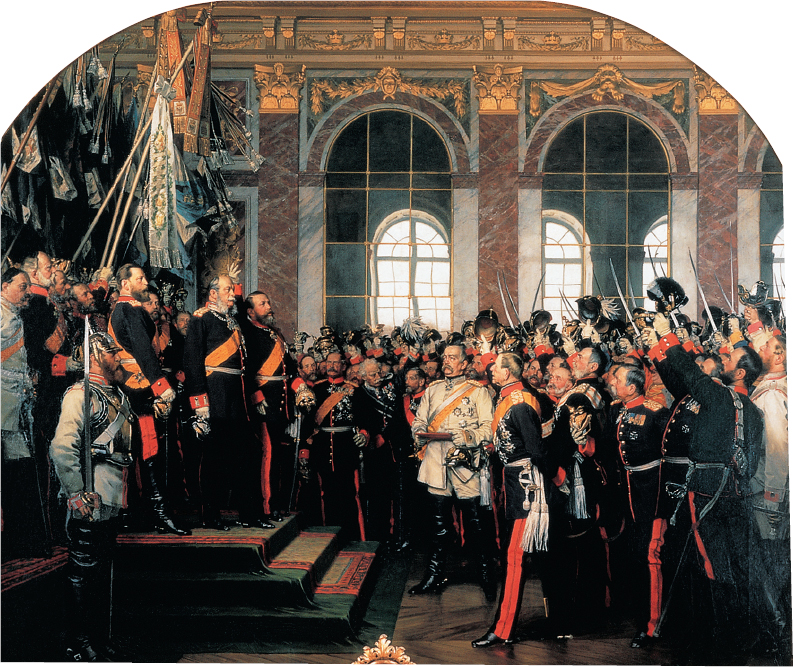Understanding Western Society
Printed Page 716
The Franco-Prussian War
The final act in the drama of German unification followed quickly. Bismarck calculated that a patriotic war with France would drive the south German states into his arms. Taking advantage of a diplomatic issue — whether a distant relative of Prussia’s William I might become king of Spain —Bismarck pressed France. By 1870, the French leaders of the Second Empire, goaded by Bismarck and alarmed by their powerful new neighbor, declared war to teach Prussia a lesson.
German forces under Prussian leadership decisively defeated the main French army at Sedan on September 1, 1870. Louis Napoleon himself was captured. Three days later, French patriots in Paris proclaimed yet another French republic and vowed to continue fighting. But after five months, in January 1871, a besieged and starving Paris surrendered, and France accepted Bismarck’s harsh peace terms.
By this time, the south German states had agreed to join a new German Empire. With Bismarck by his side, William I was proclaimed emperor of Germany. As in the 1866 constitution, the king of Prussia and his ministers had ultimate power in the new German Empire, and the lower house of the legislature was elected by universal male suffrage.
The Franco-
